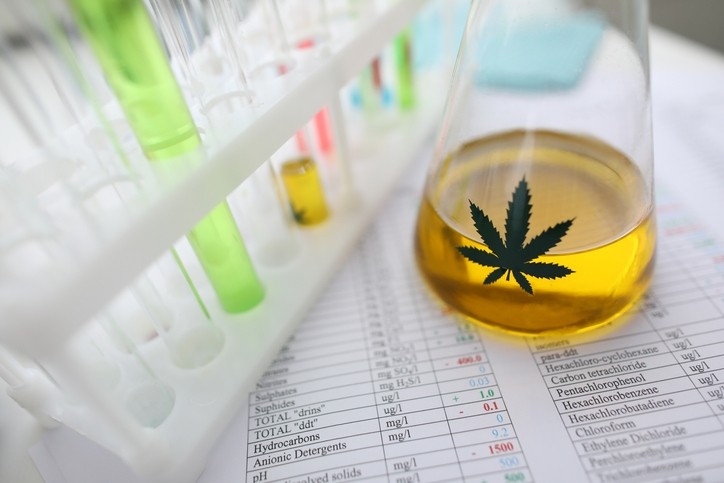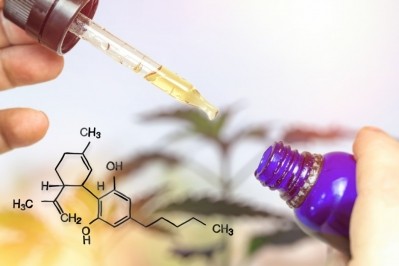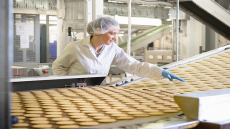‘A Christmas wish come true’: CBD industry celebrates as EC resumes Novel Food applications

The move came after the European Court of Justice ruled that CBD is not a narcotic drug as it “does not appear to have any psychotropic effect or any harmful effect on human health”.
This verdict, which related to the prosecution of French e-cigarette company KanaVape, put pressure on the EC to change its decision in June to postpone the progress of CBD Novel Food applications as it decided whether to class non-synthetic CBD as a narcotic.
The EC had originally said it would base its position based on the findings – on December 2 – of a United Nations Commission on Narcotic Drugs (CND), which would decide whether to implement World Health Organisation recommendations to ease near 60-year restrictions on cannabis and CBD.
Back in January 2019 WHO had recommended the CND move to “a level of control that will prevent harm caused by cannabis use and at the same time will not act as a barrier to access and to research and development of cannabis-related preparation for medical use”.
At the vote, the UN agreed to remove cannabis and cannabis resin from Schedule IV of the 1961 Single Convention on Narcotic Drugs — where it was listed alongside specific deadly, addictive opioids, including heroin, opening the door to recognizing the medicinal and therapeutic potential of the drug.
Industrial hemp derived from the flowering and fruiting tops of the cannabis plant, as opposed to other parts of the hemp plant, and hemp products for non-medical CBD for non-medical and non-scientific purposes still remain out of the scope of the Single Convention.
The difference between industrial hemp and CBD
Industrial hemp and marijuana are both varieties of the Cannabis sativa plant. While both parts of the same species, hemp contains significantly lower levels of the psychoactive compound tetrahydrocannabinol (THC) than marijuana and higher levels of the non-psychoactive compound cannabidiol (CBD). Unlike marijuana, therefore, neither hemp nor CBD gets you ‘high’. Industrial hemp is seen as a durable fibre with potential beneficial uses in the paper and textile industries.
CBD and hemp seed oil (made from the seeds of the plant) is extracted from the hemp plant and used in food and beverage products. Recent studies show that CBD may be an effective treatment for epilepsy and although there’s no hard evidence, according to the Harvard Medical Business School in the US, CBD may prove to be an option for managing anxiety, insomnia and chronic pain.
Hemp products derived from flowering and fruiting tops of the cannabis plant remain illegal, according to the UN Single Convention on Narcotic Drugs. CBD oil must be extracted from the stem, stalk, leaves, and flowers of the hemp plants.
‘Another positive development for the sector’
In light of both the UN and ECJ rulings, the EC eventually concluded CBD should not be considered as a drug and can be qualified as food.
“The Commission has reviewed its preliminary assessment and concluded that cannabinoid should not be considered as a drug within the meaning of the United Nation convention [Schedule IV of the 1961 Single Convention on Narcotic Drugs],” European Commission spokesperson Stefan De Keersmaecker told journalists on December 3.
“This means that cannabinoid can be qualified as food and commission services are now contacting different applicants to let them know that we are resuming our verification of the validity of the applications they have introduced.”
A cock-a-hoop European Industrial Hemp Association (EIHA) President Daniel Kruse called the UN and ECJ decisions a ‘truly historic moment for mankind’. “The cannabis sector sees a Christmas wish come true,” he said. “I truly thank the UN and our EU commission for these absolutely great Christmas presents!“
EIHA Managing Director Lorenza Romanese added: “As predicted, the ECJ ruling has had a positive effect on the Commission’s position. Now that CBD can be qualified as food, the EIHA Novel Food joint application is perfectly set up for achieving safety assessment and standards for our growing industry. We also welcome the vote of the United Nations, which leads to a modern and sound scientific approach regarding cannabis in general.”
UK industry body the Association for the Cannabinoid Industry (ACI), which has set up a safety consortium to help its members compile their Novel foods applications for CBD isolate and distillate ingredients, was equally jubilant.
ACI Development Director Shomi Malik said: "The news that the European Commission has ruled CBD to be classified as a food and not a narcotic is another positive development for the sector. This follows a series of significant results for the industry on an international level. The ACI will continue to support our members in the UK and other markets where legal clarity exists relating to the sale of extracts containing cannabinoids."















